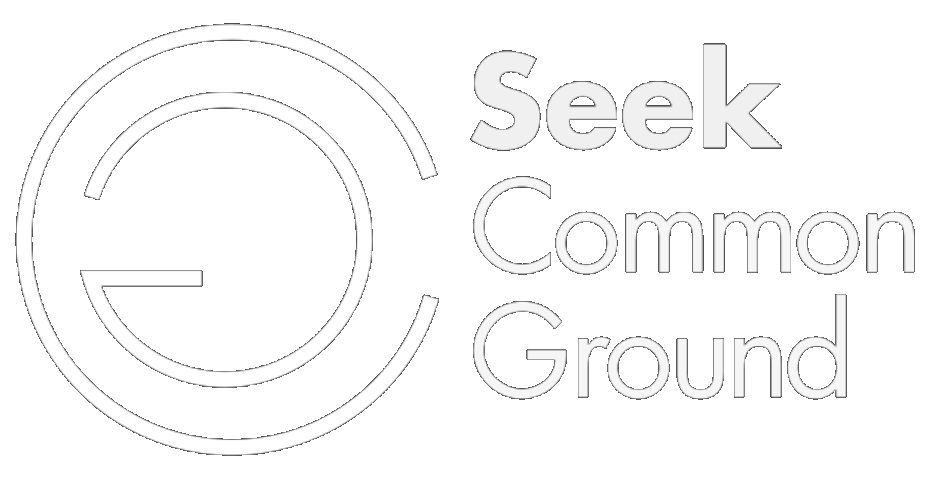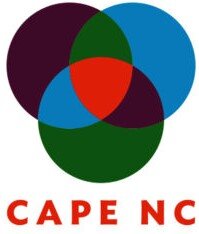Michael Gilligan, Chief Common Ground Officer & Co-founder of Seek Common Ground
message from our CHIEF common Ground officer:
In summer 2020, it was apparent that the voices of families, students, and educators needed to be amplified in agenda setting for how to respond to the effects of COVID-19 on schooling and to reckon with the systemic inequities exacerbated by the pandemic and brought to the world’s attentionby the summer uprising. To surface ideas, and support community-led efforts, Seek Common Ground established an Action Accelerator to support organizations to ideate and execute high-impact, short-term projects to tackle pressing priorities around their expectations for the 2020-21 school year; to give voice to community members grappling with the twin scourges of racism and the pandemic; to collaborate with one another to improve eachother’s projects and to join in fellowship; and to access, and inform, experts on their topics.
Seek Common Ground facilitated a Learning Community of 12 identified organizations; provided project funding and technical advice to each to engage in an improvement-science informed process to test ideas for how to include, and serve, families, students, and educators in their efforts; and access to complementary resources to enhance and expand the reach of their work. The result was to incubate and support innovative, scalable, and replicable projects developed through the collaboration of families, students, and educators; and to form a community that allowed these new partners to share ideas, challenges, and successes with one another and with others in the field grappling with similar issues.
The partners in the Learning Community comprised three cohorts:
Centering Community Voice ↓
This four-member cohort included the following organizations: NY-based Alliance for Quality Education, Climb Higher Colorado, Greater Baltimore Urban League, and Louisville UrbanLeague. The strand tying their projects together was a commitment to elevate and represent the concerns and perspectives of students, families, and educators from the areas they serve. A representative effort from this group was Louisville Urban League’s Polaroid Project through which over 100 photographers ranging from elementary school students to people in their early twenties documented their lived experience in the summer and fall of 2020 in Louisville, KY and created a shared space to present their work.
Community Mobilization ↓
The NC-based Community Alliance for Public Education, Coleman Advocates for Children & Youth in San Francisco, ME-based Portland Empowered, and Young Organizers United in Manchester, NH each issued a call to action from their organizations based on the demands and needs of the communities they represent. Coleman Advocates effort, “Equity Framework to Reopening SF Schools,” provided community guidance to city and school officials to expand expectations from reopening school buildings to addressing the social, emotional, and academic development of Black and Brown students.
Participatory Action Research ↓
Participatory Action Research: Each of the efforts within this cohort tapped expertise, intergenerational collaboration, and authentic cocreation of research instruments to design and deploy surveys of families, students, and educators on their perceptions and expectations for schooling in the pandemic year. In addition to projectsfrom Georgia Partnership for Educational Excellence, Kentucky StudentVoice Team, and TX-based Intercultural Developmental Research Association, the Black & Brown Coalition for Educational Equity & Excellence based in Montgomery County, MD used the results from their survey to press county and school district leaders to open “EquityHubs” to provide low-cost, reliable, safe spaces for students to access the educational and social services to which they are entitled.
Highlight Reel
Learning Community
The Black and Brown Coalition for Educational Equity and Excellence
montgomery County, MAryland
The Black and Brown Coalition for Educational Equity and Excellence conducted focus groups and one-on-one interviews to deeply explore barriers to virtual learning for Black, Brown and low income students. Study findings were captured in partnership with the University of Maryland School of Public Health and formed the foundation of a communal learning event for coalition members who used the participants’ experiences to shape the Coalition’s next advocacy “asks”.
tHE aLLIANCE FOR QUALITY EDUCATION
NEW YORK
The Alliance for Quality Education held intimate conversations with 200 community members in seven NY cities and, based on feedback, developed a full policy report and proposal along with a toolkit that empowered parents with the necessary advocacy tools for how they wanted their schools to reopen.
Coleman Advocates
San Francisco, california
Coleman Advocates for Children and Youth hosted three separate summer programs with our Children Making a Change, Youth Making a Change, and Parents Making a Change cohorts, gathering feedback about issues faced during and as a result of COVID; hosted three listening sessions; and sent out surveys in order to get to the finer points of students’ academic and wellness losses compounded as a result of COVID. CACY met with educators, to learn about their classroom experiences, what they see as potential solutions to academic challenges, and to identify wellness supports needed.
Community Alliance for Public Education
Durham, north carolina
Community Alliance for Public Education engaged directly with families, educators, school staff members, including Spanish-speaking families who have traditionally been excluded from communication and decision-making due to language access barriers.
Climb Higher Colorado
Climb Higher Colorado launched and facilitated an eight-week learning community called the Family-Centered Learning Network. The FCLN consisted of four design teams of 27 total participants representing diverse communities across Colorado who were committed to deepening their work with their community in response to the challenges of learning in the time of COVID.
Greater Baltimore Urban League
Baltimore, maryland
The greater Baltimore Urban League collaborated with youth activists to develop town halls called the “Kickback Conversation Series” to create a more accessible and casual space for youth to engage with government officials, education advocates, former and law enforcement officials, community activists, and peers in higher education institutions. These forums were broadcasted live on Facebook and YouTube with the opportunity for participants and the community to ask questions and receive immediate responses.
Georgia partnership for excellence in education
The Georgia Partnership for Excellence in Education partnered with two rural districts in southwest Georgia (Early County and Grady County) to conduct separate online surveys developed for students, parents, and teachers to gather an understanding of concerns related to school re-opening. Focus groups were also conducted to gain a deeper perspective on the issues impacting stakeholder groups.
Intercultural Development Research Association
san antonio, texas
Intercultural Development Research Association conducted COVID-19 focused participatory action research (PAR) and hired four student researchers to lead the project over a three-month period. The phases of the project consisted of building, distributing, and analyzing responses from the survey to produce a student-centered advocacy agenda. Within the survey the students chose to focus on four main categories: Discipline in School, Education Equity, Home Stressors, and At-Home Learning. Throughout the project, IDRA provided trainings to the students and opportunities to learn from experts and supported the student researchers as they created the survey by hosting sessions to identify survey themes and formulate specific questions.
Kentucky Student Voice Team
In the wake of statewide school closures, the Kentucky Student Voice Team (then-Prichard Committee Student Voice Team), launched a student-designed quantitative and qualitative study investigating Kentucky students’ experiences during the first months of the COVID-19 crisis. Inspired by their overwhelming response rate, their data, and process, SVT developed companion studies on how Kentucky educators and families have been impacted by the COVID crisis. Through this codesign process and dialogue between students and educators and parents, SVT sought to bridge the empathy gap between our schools’ primary stakeholders; better inform education decision makers about how to support students, teachers, and families as schools work through and beyond the pandemic; and demonstrate what is possible when participatory action research is used to drive policy.
Louisville urban league
louisville, kentucky
The Louisville Urban League launched the Polaroid Project and distributed almost 200 cameras to youth in Louisville asking them what peace and justice looks like to them. LUL staff and participants engaged in facilitated weekly virtual sessions to learn about photography fundamentals, learn from professional videographers and activists, and have a space to process the murder of Breonna Taylor through arts.
Portland empowered
portland, maine
Portland Empowered (then-Youth and Community Engagement) engaged youth to discuss issues impacting them during the pandemic and with regards to systemic racism. PE crafted a list of recommendations for what schools in Maine can and need to do to be anti-racist that can be customized to the unique challenges and opportunities within different schools/districts, established a youth-adult partnership learning environment where youth and adults articulated learning and growth with regards to racism and youth engagement/leadership, elevated youth voice and provided a model others could employ.
Young organizers united
manchester, new hampshire
Young Organizers United set up listening sessions to get feedback from community stakeholders including teachers, students, administrators, parents, community leaders, and local elected officials.

















